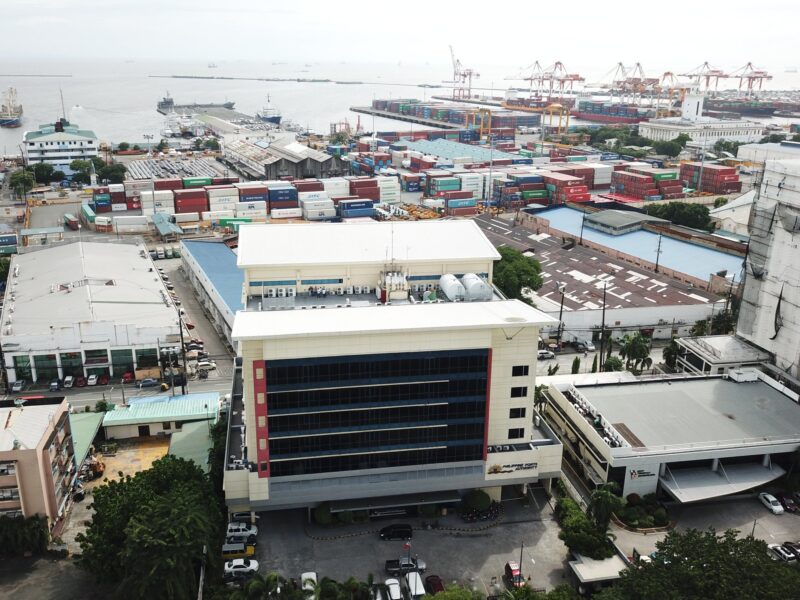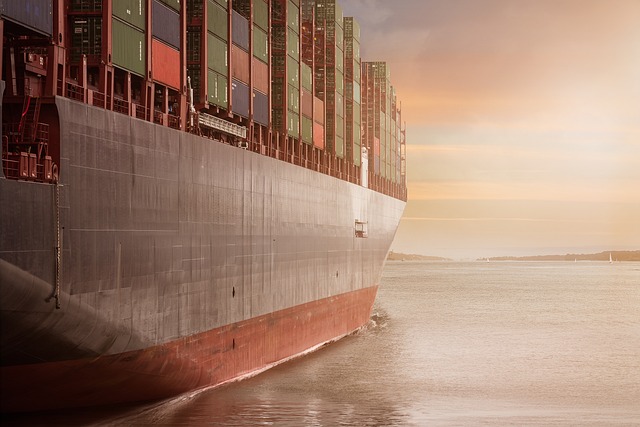-
A dozen business groups and foreign chambers of commerce requested Senator Mark Villar to file a bill that will separate the Philippine Ports Authority’s regulatory and commercial functions
-
The groups asked Villar, chair of the Senate Committee on Government Corporations and Public Enterprises, to file a counterpart bill to House Bill Nos. 1400 and 8055
-
HB 1400 and HB 8055 both aim to separate PPA’s functions by converting PPA to the Philippine Ports Corporation and transferring its regulatory function to the Maritime Industry Authority
A dozen business groups and foreign chambers of commerce requested Senator Mark Villar to file a bill that will separate the regulatory and commercial functions of the Philippine Ports Authority (PPA).
In a letter to Villar, chair of the Senate Committee on Government Corporations and Public Enterprises, the groups asked that a counterpart bill to House Bill (HB) Nos. 1400 and 8055 be filed.
HB 1400, filed by Bagong Henerasyon party list representative Bernadette Herrera-Dy, and HB 8055, filed by Quirino lone district representative Midy Cua, both aim to separate PPA’s functions by converting PPA to the Philippine Ports Corporation (Philports) and transferring its regulatory function to the Maritime Industry Authority (MARINA). Both bills are pending before the House Committee on Government Enterprises and Privatization.
Signatories to the letter were the American Chamber of Commerce of the Philippines, Inc.; Association of International Shipping Lines, Inc.; Canadian Chamber of Commerce of the Philippines, Inc.; Confederation of Wearable Exporters of the Philippines; European Chamber of Commerce of the Philippines; Foundation for Economic Freedom; Japanese Chamber of Commerce and Industry of the Philippines, Inc.; Korean Chamber of Commerce Philippines; Management Association of the Philippines; Philippine Chamber of Commerce & Industry; Philippine Inter-Island Shipping Association, Inc.; and Philippine Exporters Confederation, Inc.
“The proposed bill can be understood by the simple logic that an examiner cannot also be the examinee,” the groups said.
They noted that from 1974, when PPA was created, “the combination of regulatory and development functions of the PPA has been a source of a conflict of interest for the agency’s functions.
“While it has long been established as the policy of the State to avoid such conflicts of interest, PPA’s case, seemingly, did not catch the attention and scrutiny of previous congresses,” the groups noted.
“…we believe it is timely and relevant to separate the regulatory and development functions of PPA — not only to abide by the long-established state policy against conflict of interest, but also to allow the agency to focus on improving port operations, while MARINA will assume the regulatory functions over ports currently handled by the PPA,” the groups said.
They noted that the Joint Foreign Chambers of Commerce in a policy brief titled Seaports and Shipping published in September 2018 had also recommended the passage of a law that would convert the PPA into Philports to handle development, management, and operation of public ports while its regulatory functions would be transferred to MARINA.
“For many years, news reports and studies have discussed inefficient management of Philippine ports, sometimes resulting in overcrowding of passengers at ports and on vessels, delayed trips, and worse, vessel-related accidents and fatal mishaps at sea,” the groups said.
These are in addition to complaints of low service levels, inefficient port operations, and increasing port charges.
All of these are happening when the role of sea transport has become increasingly important in the nation’s strategy to maintain high levels of economic growth, the groups said.
The establishment of the Ro-Ro spine system 15 years ago and its ongoing expansion is one example of a successful reform to augment sea transportation, they said.
The groups noted the importance of shipping, saying that with the Philippines being an archipelago of more than 7,000 islands “it is impractical to connect all islands through only a network of airports.”
They added: “Sea travel is a very viable and essential mode of transportation to connect our islands. Additionally, we wish to highlight the importance of maritime shipping to local and foreign trade. Because it is too expensive to move most cargoes by plane, such freight depends on ships for transport. Consequently, adequate, efficient, safe, and affordable sea transport can exponentially increase the country’s competitiveness and output in both local and foreign trading networks.”
Similar bills to HB 1400 and HB 8055 have been filed in previous Congress, but they were stuck at the committee level.









